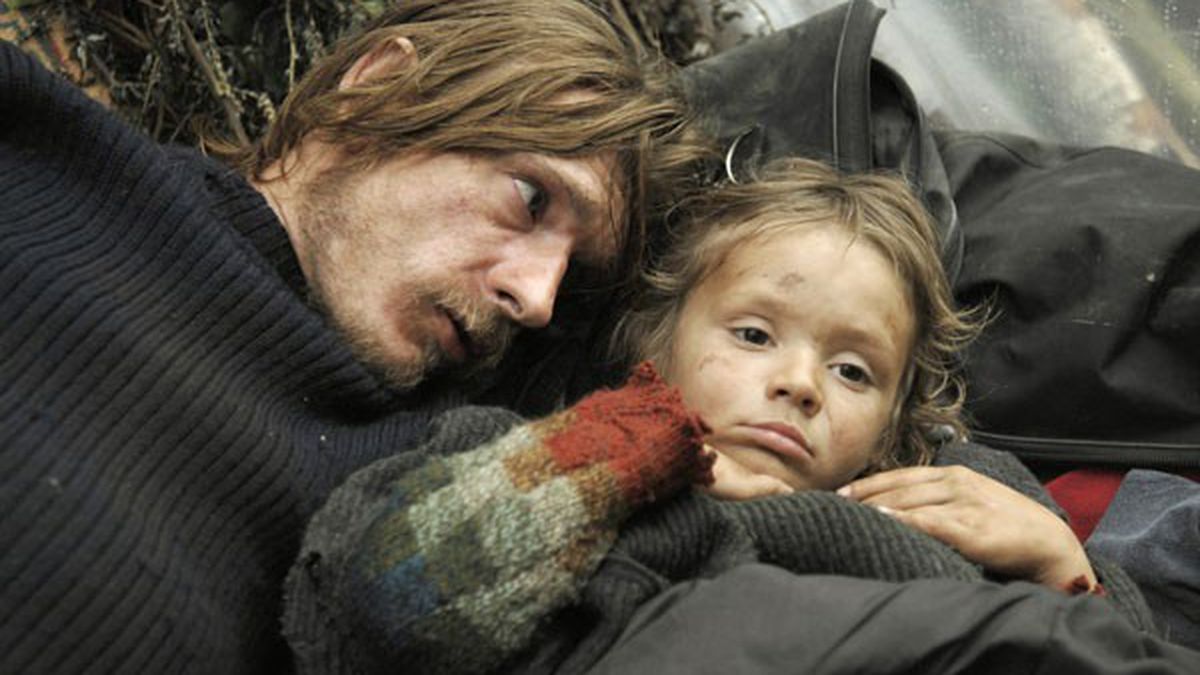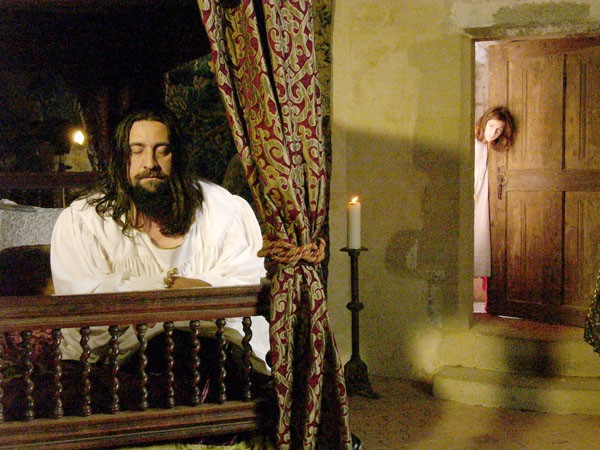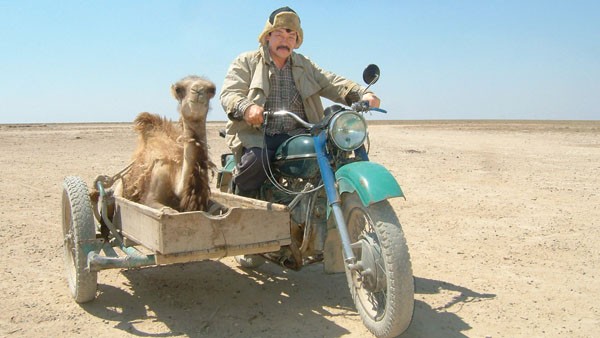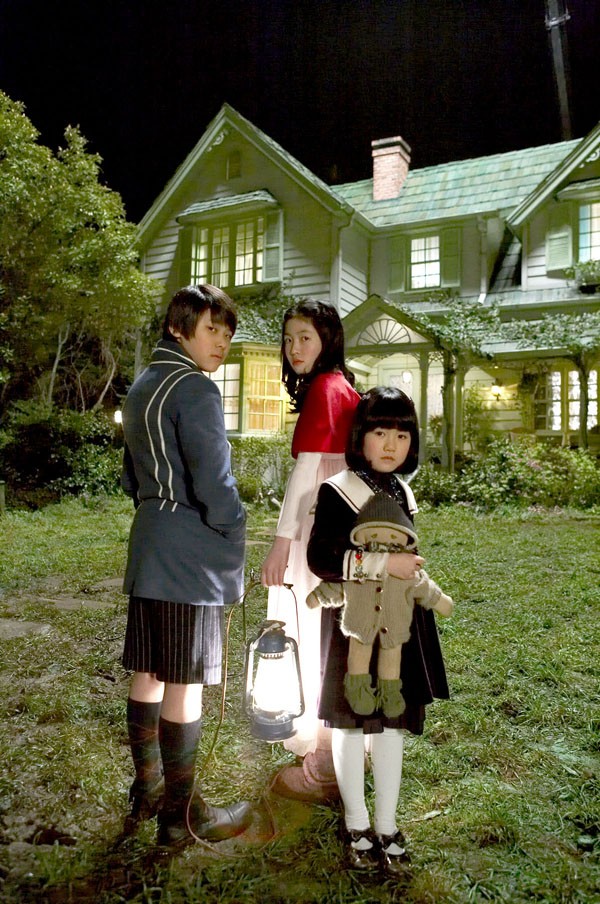Blame it on global economic troubles if you must — or simply chalk it up to coincidence — but the San Francisco International Film Festival appears to be sticking a little closer to home this year.
That is, if your idea of home alone is 151 films from 55 countries in 34 languages, with ten world premieres, some 200 filmmakers and movie industry guests, and an opening night screening of Peter Bratt’s La Mission (Thursday, April 23, 7 p.m. at the Castro). The San Francisco Film Society, governing body of the festival, casts a wide net and strives mightily for cosmopolitan unpredictability. But there’s no denying a certain “gotta get back to the base” feeling in the 52nd annual edition of the festival.

The French contingent makes a strong showing in Versailles. 
Bluebeard. 
North Oakland is the setting of Frazer Bradshaw’s Everything Strange and New. 
Sergey Dvortsevoy’s Tulpan is a clear favorite for Village Picture of the Year. 
Jonathan Parker’s (Untitled) is perhaps the funniest comedy of the film festival. 
Ferlinghetti is Jack Felver’s documentary of the San Francisco poet. 
Hansel and Gretel is a winner. 
It’s there in the Founder’s Directing Award to Francis Ford Coppola, the Bay Area’s grand old man of moviemaking, as well as the Peter J. Owens Award for acting to Robert Redford, who’s bringing along a print of Butch Cassidy and the Sundance Kid (April 29 at the Castro). Coppola’s big night takes the form of an on-stage moderated bull session with more local leading lights — Star Wars king George Lucas, editor extraordinaire Walter Murch, and screenwriter Matthew Robbins — May 1 at the Castro.
The keep-it-local vibe extends to the programming. Ferlinghetti, Sausalito filmmaker Jack Felver’s documentary profile of Lawrence Ferlinghetti, San Francisco’s poet laureate and North Beach renaissance man (“Don’t call me a Beat. I was never a Beat,” he declares), enjoys a world premiere engagement at the PFA (May 6) and the Kabuki (April 28). Felver and Ferlinghetti appear in person for the Kabuki show. Down in the city’s seething Tenderloin, Bay Area documentarians Allie Light and Irving Saraf introduce us to the colorful residents of the Empress Hotel, an Eddy Street home for the homeless. Once upon a time the Prince of Wales visited the Empress and so can you, vicariously, April 25, 27, and 29 at the Kabuki.
North Oakland in all its bland glory is the setting for Frazer Bradshaw’s Everything Strange and New, the mind-numbingly slow, deliberate story of a sad-sack construction worker named Wayne (Jerry McDaniel), who’s suffering from the economic blues. Indie director of photography Bradshaw wrote, directed, and shot it, and the East Bay’s Dan Plonsey supplied the appealing music. Oddly, it plays only at the Kabuki (April 26 and 28, May 2). Then there’s David Lee Miller’s My Suicide, a “self-inflicted comedy” in which video-obsessed teenager Archie (Gabriel Sunday) conquers both his suicidal urge and his horniness with help from a fellow sufferer named Sierra (Brooke Nevin). No wonder he wants to kill himself — his nagging mom is Nora Dunn, overdoing it as usual. Also in the squandered supporting cast: Joe Mantegna as a shrink with a corny accent and David Carradine as the shaman. My Suicide has three showings at the Kabuki (May 1, 5, and 6).
Bay Area writer and composer Jonathan Parker is responsible for perhaps the festival’s funniest comedy, (Untitled), or, as we call it, Art School Confidential Goes for Its Doctorate. A laughably pretentious composer of modernist “attack pieces” (Adam Goldberg); his brother, a frustrated painter of canvases for corporate anterooms (Eion Bailey); a computer millionaire collector of howlingly awful artworks (Zak Orth); and a vinyl-skirted Macchiavelli of a gallerista named Madeleine (Marley Shelton) thrash around madly in the Lower Manhattan art scene, leaving a trail of headaches and ruptured careers. April 24, 25, and 27 at the Kabuki.
One of the very best films in the 2009 SFIFF is likely to be overlooked because it’s resolutely anticommercial. Lee Anne Schmitt’s thought-provoking California Company Town consists of deadpan documentary visits to a series of California communities, now mostly ghost towns, whose destinies were shaped by one industry: lumber towns, oil towns, prison towns, military towns, mining towns, cotton towns, steel towns, a former socialist utopian society in Sequoia National Park, and, sadly, the site of the WWII Japanese-American internment camp in Manzanar. In its austere procession of lonely images with spare voiceover narration, this travelogue of crushed hopes resembles another masterpiece of politically progressive essay filmmaking, the John Gianvito/Howard Zinn Profit Motive and the Whispering Wind, which screened at the 2008 festival. Incidentally, Schmitt teaches at California Institute of the Arts. You have three chances to see this remarkable documentary: April 30 at the PFA, and May 2 and 4 at the Kabuki.
The French contingent always makes a strong showing at the SF International. In addition to the West Coast premiere of Claire Denis’ intriguingly-titled drama 35 Shots of Rum, at least two of the 21 French films in the festival are worth lining up for. Catherine Breillat, whose The Last Mistress at last year’s fest showed what can be accomplished by a bit of 18th-century literature garnished with Asia Argento, returns with a genuine fairy tale, Bluebeard. Based on Charles Perrault’s 17th-century children’s tale about a shy but courageous young teenager (Lola Creton) who goes to live in a castle with a hairy, fearsome nobleman (Dominique Thomas) rumored to have killed his wives, Breillat’s story-within-a-story delights in its narrative games. This mischievous little feminist parable, weighing in at a slender 78 minutes, wraps worlds of myth and wonder in its bedtime terrors. It’s highly recommended. April 24, 25, and 29 at the Kabuki.
Pierre Schoeller’s Versailles wears its own peculiar, childlike nature a little more openly, in the chronicle of a contemporary homeless woman (Judith Chelma), her five-year-old son (Max Baissette de Malglaive), and the man whom they meet at his shack in the forest where Louis XIV once hunted deer, on the grounds of the title palace outside Paris. The late Guillaume Depardieu displays a rough-house tenderness, not unlike that of Charles Chaplin in The Kid, as little Enzo’s guardian, doing his best to pass on his values (“Without guts, we’re nothing”) in the woodsy community of squatters. One of Depardieu’s last films, and very much the equal of his work in Jacques Rivette’s The Duchess of Langeais. Versailles plays the PFA on May 3.
The SF Film Society maintains a “Hold Review” list of films that have been picked up for distribution and will be released commercially sometime in the future. Frequently they’re the best films in the festival — that’s presumably why they got distribution deals — but not always. This year’s SFIFF has a decent crop of such movies. We’ll be reviewing them as they hit the theaters, but it’s always fun to be the first one on your block to see the latest art-house sensation, so brave the crowds and plunge in. Here are a few quick peeks at some of the films we’ve been asked to “hold reviews” on:
Rudo y Cursi reteams the Y Tu Mamá También guys, Gael García Bernal and Diego Luna, in a contemporary Mexican soccer comedy, of all things. As written and directed by Carlos Cuarón (brother of filmmaker Alfonso), it tallies the foibles and pratfalls of a pair of brothers from the deep countryside who unexpectedly become fútbol stars in Mexico City. It’s hard to believe that the tall, dark-haired, blustery “Rudo” is the same Luna who played Sean Penn/Harvey Milk’s mincing lover in Milk. But that’s showbiz. Rudo y Cursi (the title refers to their nicknames, “Crude” and “Corny”) screens at the Kabuki on April 30 and May 1, then opens theatrically on May 15.
Filmmaker Jeffrey Levy-Hinte’s Soul Power uses terrific documentary outtakes from When We Were Kings to show what happened in 1974 when promoters brought James Brown, the Spinners, B.B. King, Celia Cruz and Fania All-Stars, and a planeload of African-American entertainers to Zaire for a mammoth concert built around Muhammad Ali and George Foreman’s “Rumble in the Jungle” boxing match. Ali steals the movie from everyone but Soul Brother #1, James Brown. It shows one night only, April 26, at the Kabuki, before its July 17 opening. Moon, a one-man-show sci-fi adventure by director Duncan Jones (son of David Bowie), stars Sam Rockwell and at least two of his clones as a fellow with the loneliest job in space: tending the helium harvesting machines on the moon. You’ll feel like you’ve spent three years with Rockwell, too. May 3 at the Castro. Opens June 14.
A pair of can’t-miss comedies from the UK: Stephan Elliott’s Easy Virtue (May 6 and 7 at the Kabuki), an English country-house farce pitting gorgeous Jessica Biel, as an American race driver, against Kristin Scott Thomas’ fire-breathing matriarch — adapted from Noël Coward’s play with full 1930s accoutrements. Its first run starts May 29. One of the fest’s most hilarious films, Armando Iannucci’s In the Loop, makes deadly fun of politicians and their flunkies on both sides of the Atlantic in the run-up to our current war in Iraq (oh, that war, again?), with enough scathing putdowns and abject groveling to last until mealtime. It opens sometime later this year, but you can catch it April 28 or May 2 at the Kabuki.
What film festival would be complete without one of director Atom Egoyan’s angst-filled Canadian guilt dramas, fully outfitted with cellos sawing away mournfully on the soundtrack, gently falling snow, and the worried expressions of actor Arsinée Khanjian? Egoyan’s Adoration has all of the above in the story of a schoolteacher, a student, and the student’s unhappy home life. Actually, it’s one of Egoyan’s triumphs, his best film since Felicia’s Journey. At the PFA April 27, then opening May 15. Think Egoyan’s self-absorbed Torontoites have it bad? Try living in a yurt on the Hunger Steppe in Kazakhstan like the protagonists of Sergey Dvortsevoy’s Tulpan. When they’re not proposing marriage or riding camels, they’re helping a nanny goat give birth on the windswept steppe — graphically, in great detail. The clear favorite for the 2009 SFIFF’s Village Picture of the Year. The PFA has it on April 25. Opens May 8 in the Bay Area.
We could go on and on about the winners (Mid-August Lunch, Crude, Hansel and Gretel, For the Love of Movies: The Story of American Film Criticism, Rembrandt’s J’accuse, Kimjongilia, Sacred Places), the losers (Confessional, Zift, River People), and the puzzling in-betweeners (A Week Alone, Bullet in the Head, Z32, Lake Tahoe, Gasoline, Al más allá) of this year’s SFIFF, but let’s cut to the chase and point out a pair of must-haves for true festival junkies.
James Toback’s Tyson presents former heavyweight boxing champion Mike Tyson unplugged — just his tattooed talking head plus doc footage of his scuffles, in the ring and out. Whatever we originally thought about Tyson, the ear-biting, wife-beating überthug whom many people blame for the decline of the once-glorious blood sport of prize fighting (see Soul Power above), Toback’s film only muddies the waters. It refuses to make a value judgment on the man. That’s a positive thing, and it makes Tyson one of the most intriguing documentaries of the year. Filmmaker Toback receives the festival’s Kanbar Award for screenwriting for his body of work on May 2 at the Kabuki, immediately before a showing of Tyson. The film opens May 8.
Harry O. Hoyt’s 1925 silent animated adventure The Lost World, with monsters by Willis O’Brien of King Kong fame, gets even more lost on May 5 (8 p.m.) at the Castro, in a special one-time-only screening with live music by Dengue Fever, the Los Angeles rock band whose Cambodian retro song stylings (they did Joni Mitchell’s “Both Sides Now” in Matt Dillon’s City Of Ghosts) have made singer Ch’hom Nimol a hipster idol. Talk about a rumble in the jungle. This type of show is what a film festival is all about. For updates and complete schedule info, go to: SFFS.org or BAMPFA.berkeley.edu




















